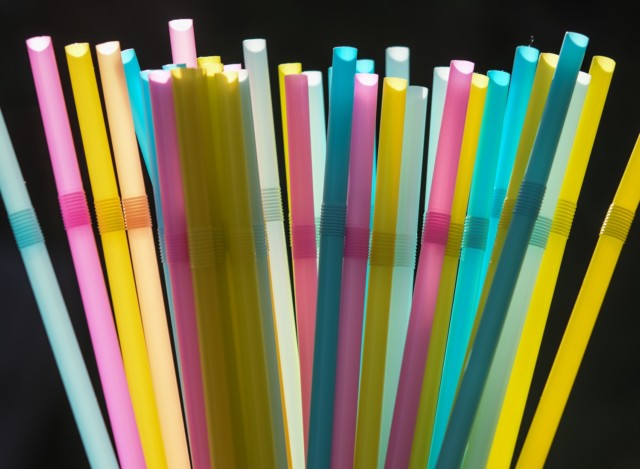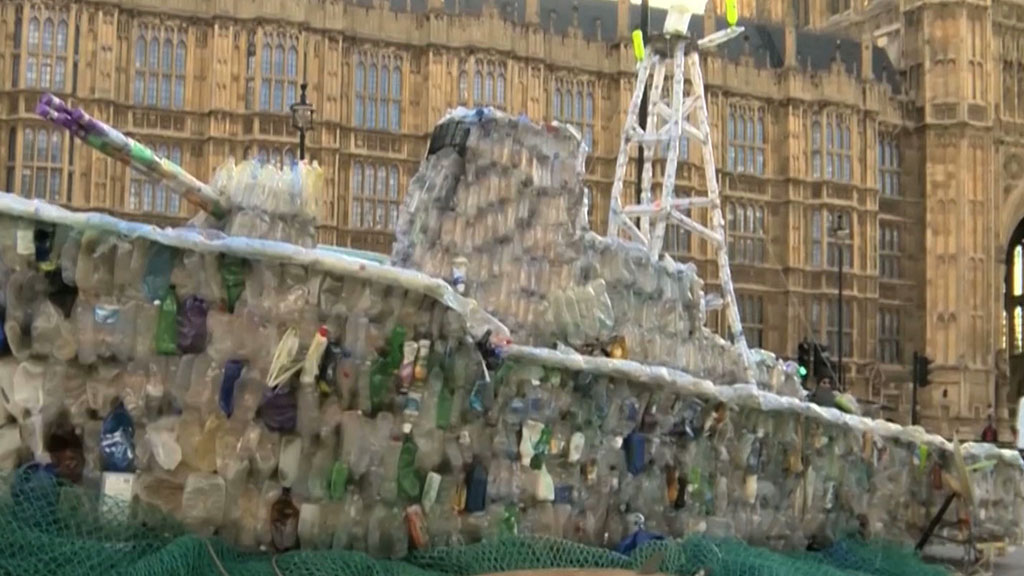Plastic pollution is a problem across the planet, but the European Union may have an answer. If all 27 member states agree, some single-use items – like plastic straws, forks and knives – would be banned.
CGTN’s Jack Parrock has more from Brussels.
The first proposals in the EU’s plastics strategy are aimed directly at trying to clean up beaches and waterways. Plastic products account for 70 percent of marine litter.
“We’re targeting the 10 most commonly found single use plastic items that have a great chance of ending up as litter, which are very difficult to recyle” according to EU Commission First Vice-President Frans Timmermans. “We also target plastic fishing gear.”
Among the items targeted for banning: Cotton buds, drinking straws and stirrers, sticks for balloons and plastic cutlery and plates. The European Commission said these have viable, eco-friendly alternatives.
The proposal will need to be approved by the European Parliament and the national governments of the EU. Additionally, as the legislation progresses, lobbying pressure from plastics manufacturers will grow.
The industry body for plastics in Europe said bans will not achieve the structural change needed.
“Of course we need proper waste management systems, and we need also the citizens to behave, not to litter the plastic,” Executive Director of Plastics Europe Karl Foerster said. “Once we collect the plastics, then we can use it again. So we either recycle it, or we thermally recycle it.”
Environmental studies estimate some 46 billion plastic beverage bottles and 36 billion straws are thrown away in the EU every year.
Brussels said the move is in response to public sentiment and projects the ban would ultimately save more than $25 billion in environmental damage and clean-up costs.
“Public awareness can only go so far,” Meadhbh Bolger of Friends of the Earth Europe said. “Beyond that, you really need policy change and legislation to drive something. We’ve seen the price of oil is so cheap that it’s cheap to produce plastics. So [when] you get them so easily, you really need the legislation to drive change.”
The EU’s plastics strategy gained momentum after China banned the import of foreign waste for recycling at the beginning of this year. This has resulted in Europe now dealing with three million tons of low-grade plastics it had previously exported every year.
Valeria Merino talks the global impact of EU’s plastic ban
CGTN’s Rachelle Akuffo spoke with Valeria Merino, vice president of Global Earth Day, on how the new regulatory initiatives from the European Union and other governments could reduce the amount of plastic waste choking the environment.
 CGTN America
CGTN America A picture taken on May 24, 2018 in Sieversdorf, eastern Germany shows plastic straws. (AFP PHOTO / dpa / Patrick Pleul)
A picture taken on May 24, 2018 in Sieversdorf, eastern Germany shows plastic straws. (AFP PHOTO / dpa / Patrick Pleul)

